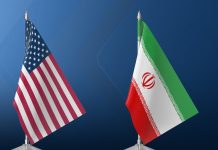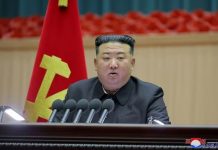DM Monitoring
CARACAS: Venezuelans waited in line at polling stations and cast ballots on Sunday in the most consequential election in a quarter-century of socialist party rule, with President Nicolas Maduro confident of victory even as the opposition has attracted impassioned support and warned of possible irregularities.
Opposition leader Maria Corina Machado has been the star of the coalition campaign, despite a ban on her holding public office that forced her to pass the torch to candidate Edmundo Gonzalez, a 74-year-old ex-diplomat known for his calm demeanor.
Gonzalez has won backing even from some former supporters of the ruling party, but the opposition and observers have questioned whether the vote will be fair, saying decisions by electoral authorities and the arrests of opposition staff are meant to create obstacles. Maduro – whose 2018 reelection is considered fraudulent by the United States, among others – has said Venezuela has the world’s most transparent electoral system and has warned of a “bloodbath” if he loses.
Journalists located in seven locations around the country reported lines outside polling stations, including some that opened late or where voting was moving slowly.
“It’s really delayed,” said voter Jonathan Pernia, 35, in San Cristobal, near Venezuela’s western border with Colombia, who said he arrived at the polling station at 3:30 a.m. “But we must not give up, it’s our chance.”
Polls close at 6 p.m. local time (2200 GMT), and results could be published on Sunday night or in the following days.
Maduro’s government has presided over an economic collapse, the migration of about a third of the population, and a sharp deterioration in diplomatic relations, crowned by sanctions imposed by the United States, the European Union and others which have crippled an already struggling oil industry. Maduro has said he will guarantee peace and economic growth, making Venezuela less dependent on oil income.
The minimum wage is equivalent to $3.50 per month, while basic food for a family of five is estimated to cost about $500. Many people receive government food baskets or remittances from relatives abroad.
Dozens of voters cast ballots at the Venezuelan consulate in the Spanish island of Tenerife, with others gathered outside waving flags and cheering.
Several voters said they had been registered at the consulate for many years.
Migrants around the world have reported difficulties registering and only a small percentage of the diaspora is expected to be able to vote.
Maduro voted early in the morning in Caracas and said the result announced by the National Electoral Council will be recognized and defended by the armed forces and the police.
Maduro said he will decree a national dialogue on Monday, using a term that typically means conversations between the government and opposition, businesses, communities and others.
Many Maduro supporters speak enthusiastically of his late mentor, long-time socialist President Hugo Chavez, and see Maduro, in power since Chavez’s death in 2013, as a continuation of Chavez’s legacy of helping the poor.
Others have told Reuters they saw Maduro’s record as mixed but that they would back him.
“There are things that without doubt need to improve in our country, but this government has lived through sanctions and blockades like no other. That’s why I back President Maduro and think he deserves another chance,” said Jose Lopez, 57, as he waited to vote in central Valencia.
Gonzalez and Machado, who have promised major changes and said a fresh start may motivate migrants to return, have urged people to hold vigils at polling stations. They have said they expect the military to uphold the results of the vote.
Gonzalez voted around noon in Caracas, and Machado was expected to cast her ballot in the Caricuao district of the capital. The opposition campaign posted videos of her greeting supporters and taking photos as she was transported on the back of a motorcycle.
Venezuela’s military has always supported Maduro, a 61-year-old former bus driver and foreign minister, and there have been no public signs that leaders of the armed forces are breaking from the government.
Twenty-two people have been arrested since Friday “in the context of the electoral process,” Gonzalo Himiob, the vice president of human rights organization Foro Penal, said on X, adding that at least 15 remain detained.
Venezuela’s attorney general this week denied participating in political persecution.
Public spending has grown only slightly during the campaign, analysts say, a change from past campaigns when spending was generous.
Maduro says he has opened 70 public works projects during the last several months, but many have been renovations of already existing schools, hospitals and roads, according to events broadcast on state television.





